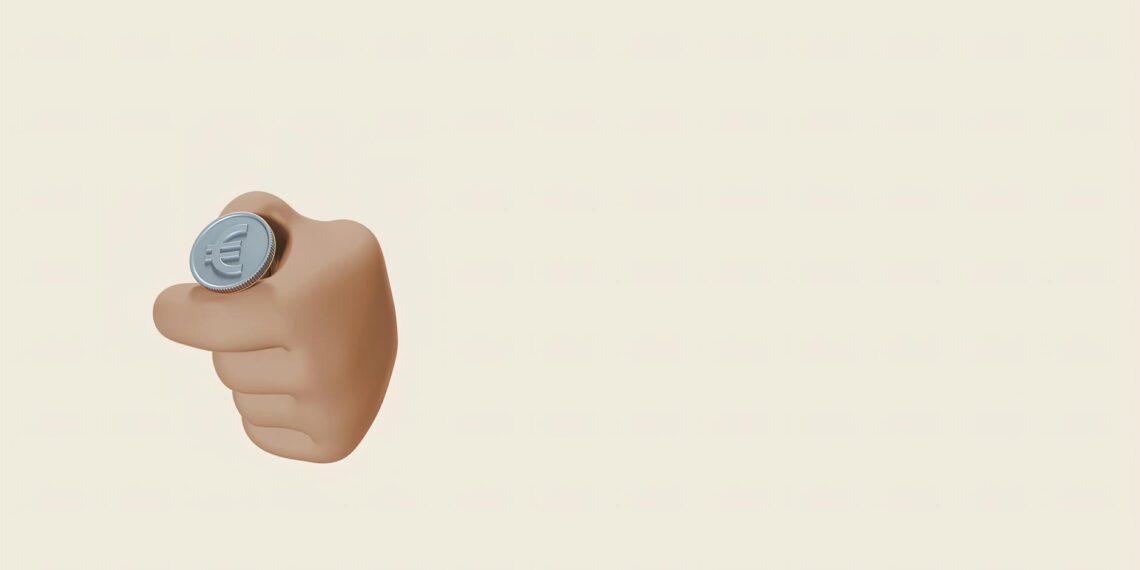Cleaning old or valuable coins requires extreme caution as improper cleaning can significantly decrease their value and damage their surface. It’s crucial to prioritize preserving the coin’s original condition and patina rather than achieving a “shiny” look.
- Avoid cleaning valuable or rare coins: Unless you are a professional conservator, cleaning rare coins is generally discouraged. The risk of damage outweighs the potential benefits.
- Handle coins by their edges: Always wear cotton gloves to prevent oils from your fingers from leaving fingerprints and potentially damaging the coin’s surface.
- Avoid abrasive materials and harsh chemicals: Never use abrasive cleaners, polishes, or harsh chemicals (like vinegar, lemon juice, or household cleaners) on coins as they can cause irreparable damage and scratches, according to CoinValues.com.
- Prioritize professional services for valuable coins: If you possess a valuable coin requiring cleaning, consult with a professional coin appraiser or conservator. They have the expertise and specialized tools to clean the coin without compromising its value or integrity.
- Warm distilled water and mild soap: For basic cleaning, gently rinse the coin under warm distilled water to loosen dirt. Avoid scrubbing or rubbing. If needed, a mild, additive-free soap can be used. Allow the coin to soak briefly, then rinse with fresh distilled water and pat dry with a soft, lint-free cloth.
- Soaking in olive oil (ancient Roman coins): For ancient Roman coins that are heavily encrusted with dirt and corrosion, soaking them in olive oil for several weeks or months can help loosen these deposits.
– Place the coins in a closed container filled with olive oil.
– Change the oil regularly (once or twice a month).
– After soaking, remove the coins and gently brush away loosened debris using a soft brush.
– Rinse with water and pat dry.
– Note: This method is slow and can darken the patina, so it’s best for heavily encrusted, low-value ancient coins.
- Ultrasonic cleaners: These use sound waves to remove dirt but can be too aggressive for delicate coins.
- Electrolysis: Involves using an electric current to remove corrosion and should only be performed by professionals or experienced collectors.
- Acetone: Can remove surface dirt and oils, but should be used in a well-ventilated area and with appropriate precautions, [according to this YouTube video].
Cleaning coins, especially those of value, can negatively impact their grade and market value. The natural toning or patina that develops on a coin over time is often desirable to collectors as it signifies originality and adds to the coin’s historical appeal. Abrasive or chemical cleaning methods can remove this patina, leaving behind an unnatural appearance and potentially damaging the coin’s surface with microscopic scratches.
In conclusion, when considering cleaning a coin, particularly a valuable one, always proceed with caution and prioritize preservation over aesthetics. When in doubt, seek professional advice to ensure the coin’s value and integrity are protected.









Can you clean a coin without losing value?
Non-Destructive Methods. The only ways to “clean” a coin without completely destroying its value involve non-abrasive methods that don’t alter the patination or toning. These techniques remove surface contaminants without damaging the coin’s underlying surface.
Will vinegar damage coins?
Yes, it’s generally advisable to stop cleaning your coins with vinegar. While vinegar can effectively remove dirt and grime due to its acidic nature, it can also damage the coin’s surface and patina, potentially decreasing its value, especially for collectible coins.
What is the best home remedy to clean coins?
From my experience, Almost nothing so we add salt to the vinegar. Add as much salt as you can with lots of mixing to make a saturated. Solution once again we get tarnished penny and dip it in.
How to clean old coins without devaluing them with vinegar?
Great question! Get a cup, or a container that can hold vinegar.
Pour vinegar into the container.
Gently put the coin in the container.
Let it set for a few minutes.
Take the coin out of the container of vinegar.
Rinse the coin in distilled water.
Dry it.